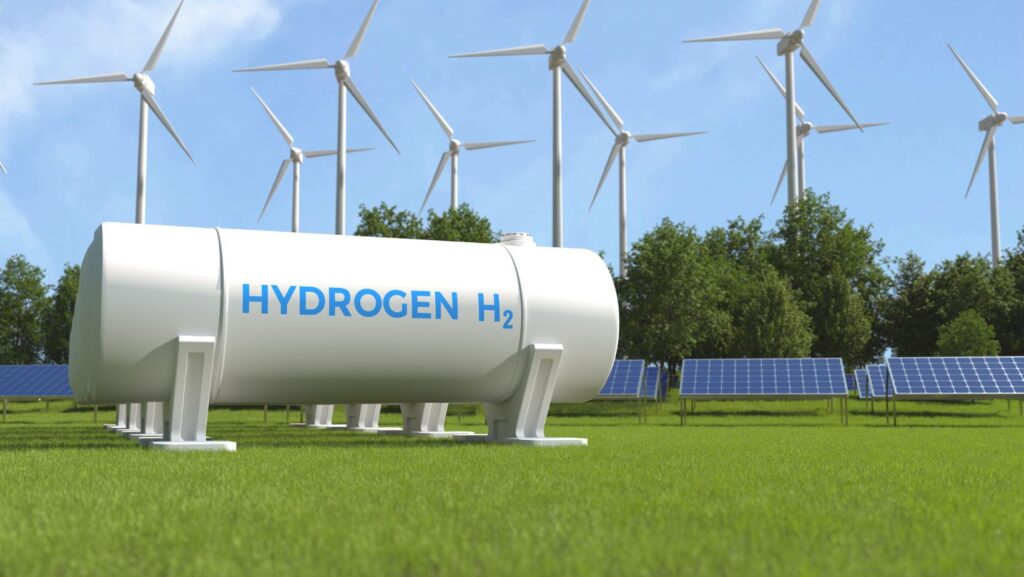The hydrogen economy is a promising solution as the world faces climate change and the need for sustainable energy. As the most abundant element in the universe, hydrogen offers an energy-rich, zero-carbon alternative to traditional fossil fuels. Its potential extends across industries, making it a versatile option for a cleaner energy future.
Why the hydrogen economy matters
The hydrogen economy is a truly transformative approach to energy. Its appeal comes from its high energy content and clean-burning properties. When used as a fuel, it produces only water vapor, making it a powerful tool for cutting greenhouse gas emissions. Unlike battery-stored electricity, hydrogen can be stored in large amounts for long periods, allowing for seasonal energy storage and helping balance the ups and downs of wind and solar power.
Beyond its environmental advantages, hydrogen strengthens energy security. By diversifying energy sources, countries can reduce their reliance on fossil fuels and lessen the impact of geopolitical tensions. It also brings economic benefits – creating new markets, jobs, and opportunities for innovation across the energy, industrial, and transportation sectors.
Understanding hydrogen production
A key element of the hydrogen economy is how hydrogen is produced. The industry uses a color-coded system to describe production methods based on their carbon impact. Grey hydrogen, made from natural gas without carbon capture, is the most common but contributes significantly to emissions. Blue hydrogen improves on this by capturing carbon dioxide during production, though it remains costly.
Green hydrogen, produced via electrolysis using renewable energy, offers the most sustainable path, producing no carbon emissions. Emerging methods like turquoise hydrogen, which splits methane into hydrogen and solid carbon, promise low-emission alternatives as technology advances. Each method presents trade-offs in cost, sustainability, and scalability, influencing the pace of adoption.
Building the hydrogen economy
While hydrogen’s potential is clear, realizing a full-scale hydrogen economy requires significant infrastructure development.
Unfortunately, current systems for producing, storing, and distributing hydrogen are still limited. To build a broader hydrogen economy, we’ll need to expand pipelines, refueling stations, and storage facilities. Policies like carbon taxes, renewable energy credits, and tax incentives are already encouraging investment in hydrogen technologies. Many countries (including Japan, South Korea, and members of the European Union) have made hydrogen a key part of their carbon neutrality goals.

But hydrogen’s potential extends beyond transportation. Fuel cell vehicles enable quick refueling and produce zero emissions, while heavy industries such as steel, cement, and chemicals are exploring hydrogen to replace or supplement fossil fuels. In power generation, it can be blended with natural gas or used on its own in advanced turbines, potentially reducing emissions though this often requires significant infrastructure investments. Even in households, limited hydrogen blending could help lower emissions from heating and cooking, though widespread adoption would depend on substantial upgrades to existing systems.
What about the challenges?
Despite its promise, the hydrogen economy faces a few challenges. Green hydrogen is still expensive to produce, and blue hydrogen requires heavy investment in carbon capture and storage. What’s more, people need to feel confident that hydrogen can be used safely on a large scale. Continued research, pilot projects, and education will be key to overcoming these issues. To make real progress, governments, industries, and research institutions will need to work together to scale up hydrogen technologies efficiently and safely.
What about the future?
The hydrogen economy represents a bold step toward a cleaner energy system.
Hydrogen has the potential to cut carbon emissions, boost renewable energy, and open up new economic opportunities worldwide. While challenges remain, continued innovation, strong policy support, and better infrastructure are paving the way for hydrogen to power industries, cities, and transport. For a world striving for sustainability, hydrogen offers a path to cleaner air, greater energy security, and a more sustainable future.




